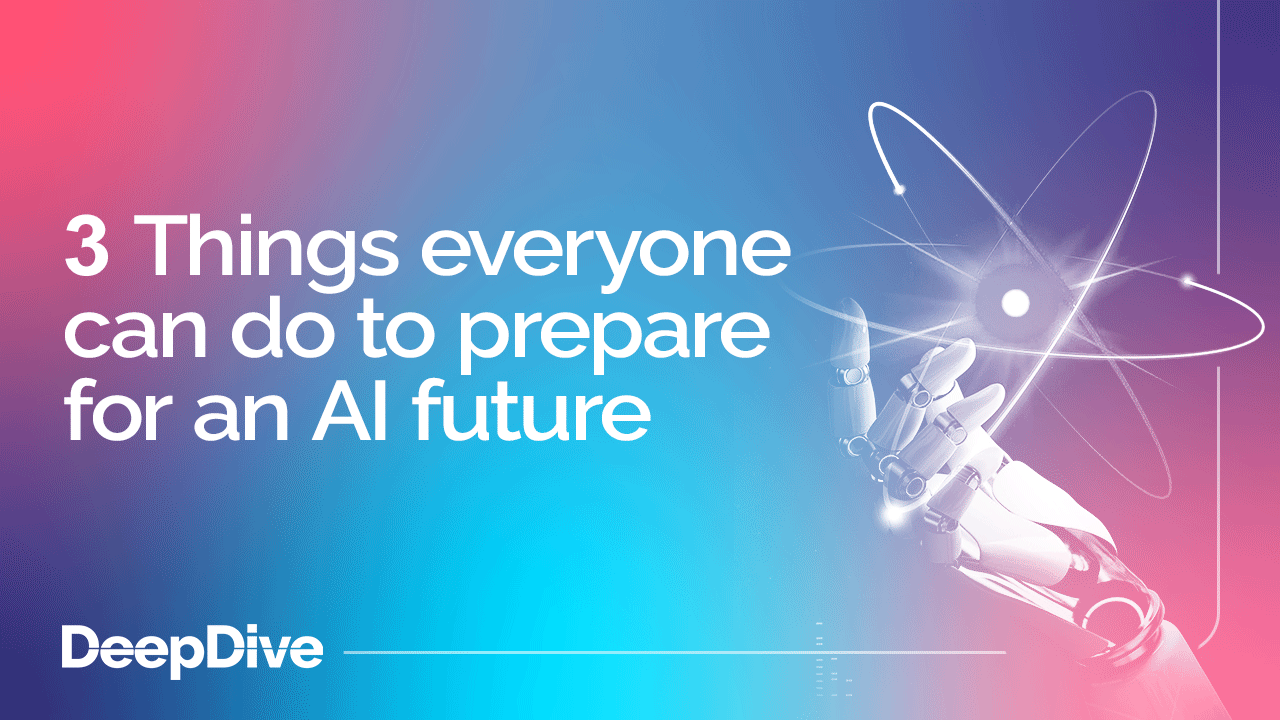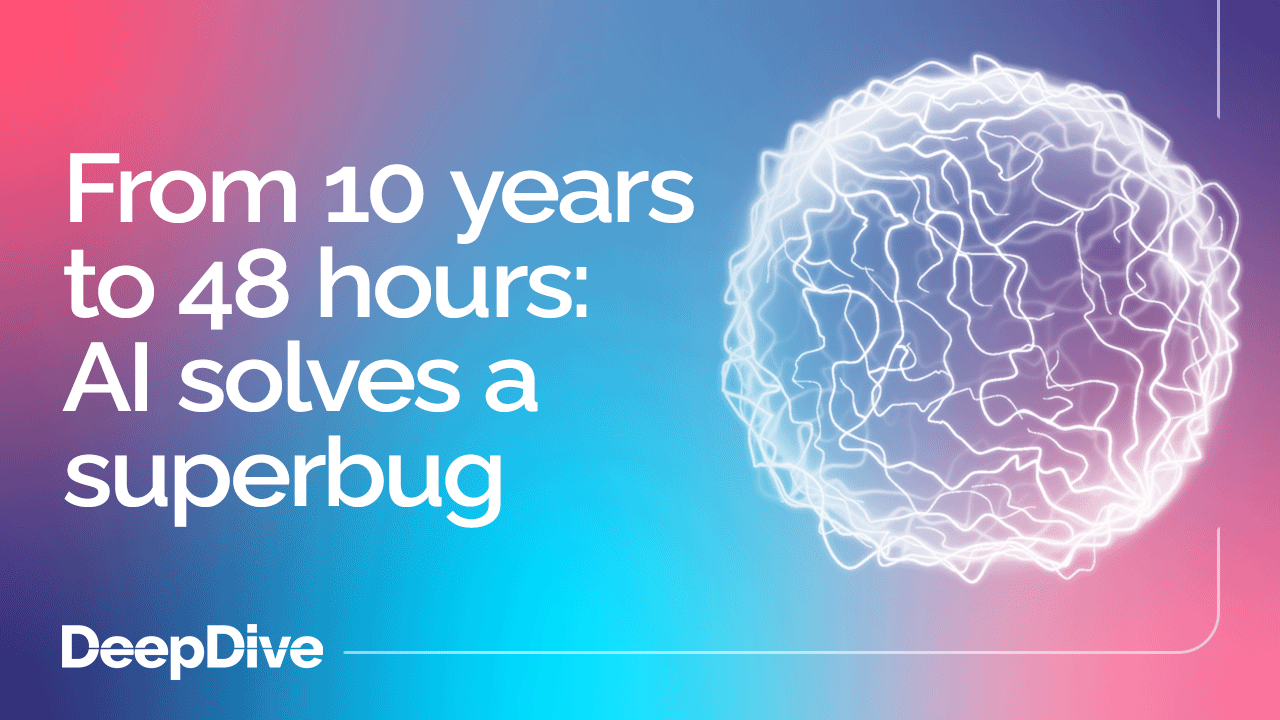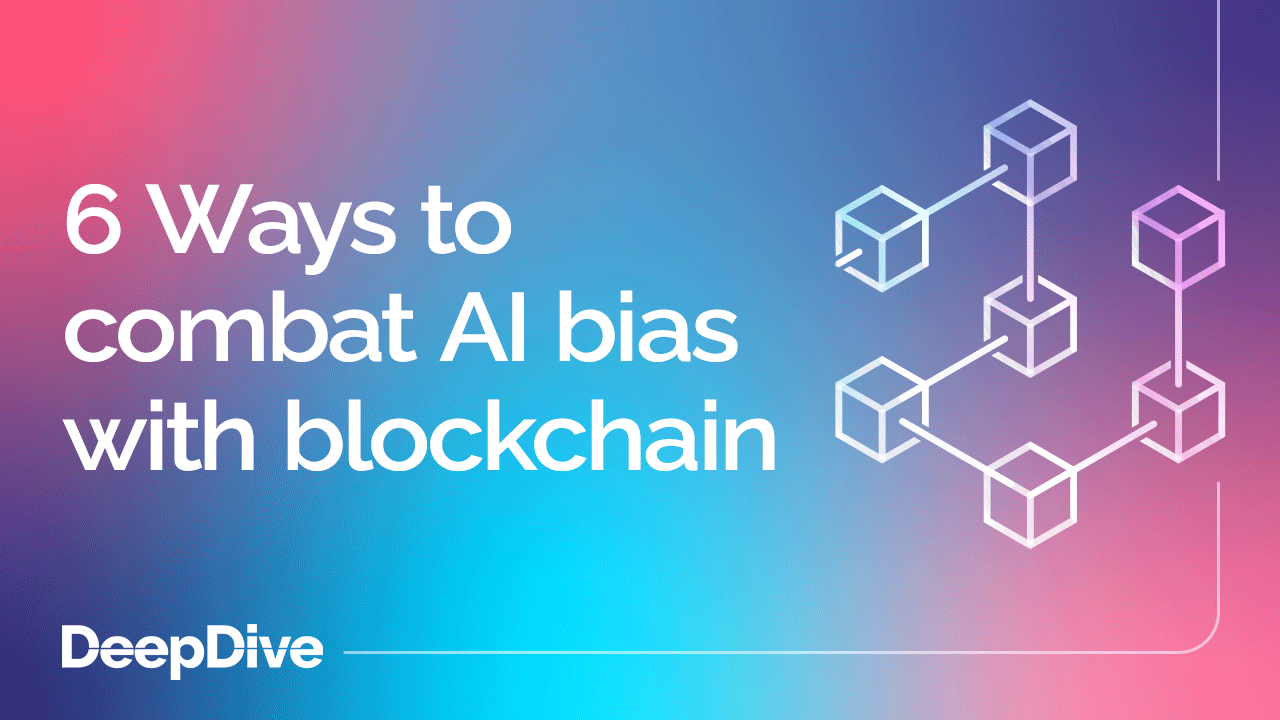

From 10 years to 48 hours: AI solves a superbug

Welcome to the 7 new deep divers who joined us since last Wednesday.
If you haven’t already, subscribe and join our community in receiving weekly AI insights, updates, and interviews with industry experts straight to your feed.
DeepDive
Your weekly immersion in AI.
Imagine if you spent an entire decade trying to figure out a complex mystery – and then a new colleague came along and solved it in only two days.
That’s pretty much what’s happened to researchers at Imperial College London, except the new colleague isn’t a human; it’s an AI model developed by Google.
For ten years, a team of researchers have been working to understand a mechanism in antimicrobial resistance (AMR) that leads to the emergence of superbugs – bacteria that can’t be treated with antibiotics.
AMR is a serious challenge for global health, with the potential to cause 39 million deaths between 2025 and 2050, according to new forecasts from the Global Research on Antimicrobial Resistance (GRAM) Project.
As detailed in this article in The Telegraph, the Imperial College team wanted to find out how some bacteria acquire new DNA that makes them fiercer and harder to treat. They found that certain bacteria produce capsids (protein shells of viruses) that encapsulate DNA and can then attach tails from different viruses.
Then they added Google’s AI Co-Scientist to the team
The research team worked with Google to test an AI innovation called the Co-Scientist, designed to act as a collaborator in scientific research. It’s capable of generating ideas and coming up with hypotheses through meticulous, high-volume data analysis.
And just 48 hours after the team gave the Co-Scientist a brief description of the bacterial puzzle they were trying to solve, the AI came up with a hypothesis that fit neatly with the team’s findings across the last decade.
They hadn’t expected it to work so effectively, so fast. But a hypothesis is, of course, just that: the AI didn’t do the scientific work to validate the hypothesis. But the experimentation had already been done – and arguably, if an AI tool had been able to propose this hypothesis right at the start of that ten-year research period, it could have made the whole process much faster and more focused.
What does this mean for scientific research?
It means that AI tools like Google’s Co-Scientist could generate hypotheses at speeds that humans simply cannot. And this has the potential to free up human researchers’ time, so they can focus on designing experiments and validating those hypotheses.
The real-world outcome of this is that scientific discoveries could be significantly accelerated across a range of different fields of study. We could learn about the world, our own bodies, the universe (and beyond) much, much faster.
It’s a glimpse into the future potential of AI in science
This collaboration between AI and experimental scientific research hints at the future of research. As AI technology continues to advance, its value as co-scientist will increase; and the power of humans working alongside AI tech holds the promise that we could uncover secrets at a faster pace, and solve some of the most critical challenges we face as a species.
We can’t hand experimental science over to AI. Human expertise, ethical decision-making, experiment design and the ability to think around problems in diverse ways are all essential to good research.
The future lies in collaboration: using AI to augment our own capabilities, not replace them.
What are your predictions for human-AI collabs?
We want to know where you think human and AI collaborations will have the biggest impact. Which industries would benefit the most from AI collaborators, and why?
We’ll see you back here next week.



6 Ways to combat AI bias with blockchain
Welcome to the 12 new deep divers who joined us since last Wednesday. If you haven’t already, subscribe and join our community in receiving weekly AI insights, updates, and interviews with industry experts straight to your feed. DeepDive Your weekly immersion in AI. A few weeks back we shared
Related
articles



6 Ways to combat AI bias with blockchain
Welcome to the 12 new deep divers who joined us since last Wednesday. If you haven’t already, subscribe and join our community in receiving weekly AI insights, updates, and interviews with industry experts straight to your feed. DeepDive Your weekly immersion in AI. A few weeks back we shared
